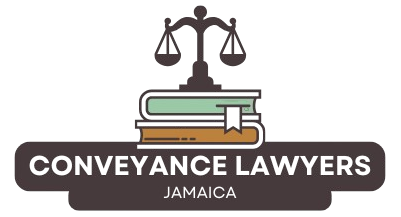Navigating a property transaction in Jamaica means working with a bundle of essential legal documents, each designed to protect every party and keep the deal enforceable. At Conveyance Lawyers ja we treat paperwork as power, guiding clients through every form while explaining its purpose, timing, and legal effect. Our lawyers draft, examine, and refine each document with forensic care so you can proceed knowing that no detail has been missed.
Core Transaction Documents
These are the formal agreements that anchor a Jamaican property sale. They spell out the price, deposit, payment timetable, and any special conditions in black and white, leaving no room for doubt later. Lenders rely on them before approving mortgages, and the National Land Agency will not process a transfer without properly executed originals. In short, they turn verbal promises into enforceable obligations and provide the roadmap that guides every party to a smooth completion.

Agreement for Sale
The Agreement for Sale sits at the centre of every purchase or disposition. This binding contract records the agreed purchase price, the deposit to be paid, the payment milestones, the closing date, a precise property description, and any tailored conditions negotiated by the parties. Conveyance Lawyers ja drafts and reviews the wording line by line, ensuring it matches Jamaican property law and that every clause supports your commercial and personal objectives. Once both sides are satisfied, the signed document becomes the rulebook for the rest of the transaction.
Transfer Instrument (TR1)
The Transfer Instrument, or TR1, is the paperwork that actually passes ownership from seller to buyer. It lists the full names and addresses of the parties, sets out the land parcel and title reference, and must be executed before a Justice of the Peace or Notary Public. When complete, the TR1, along with tax receipts and supporting forms, is lodged at the National Land Agency (NLA) for registration. The stamped and recorded instrument stands as the tangible evidence that legal title has moved.

Title & Registry Documents
These records confirm ownership history and reveal any burdens attached to the land.
Certificate of Title
Under Jamaica’s Torrens system, the Certificate of Title is the state-backed proof of who owns a piece of land. Issued by the National Land Agency (NLA), the certificate shows the current proprietor, a legal description of the parcel, and any registered mortgages, liens, restrictive covenants, or easements. A transaction cannot safely close until this document is reviewed and confirmed as accurate and free of undisclosed encumbrances.
Title search report
Before money changes hands, a title search report is compiled after an exhaustive examination of NLA registers. The report traces the chain of ownership, highlights any lodged caveats, notes recorded mortgages or liens, and flags easements or rights that may restrict future development. By revealing hidden risks early, the document arms buyer and lender alike with the facts needed to proceed, renegotiate, or walk away. It is therefore an indispensable element of due diligence in Jamaican conveyancing.
Supporting Papers
These additional documents secure identity, authority, and tax compliance for the deal.
Identification & authority letters
Every party must supply government-issued photo identification so that signatures can be matched and fraud avoided. If someone signs under a Power of Attorney or as company director, we require the notarised document or board resolution giving them that authority. Conveyance Lawyers ja checks each ID, cross-references authority letters, and keeps certified copies on file to satisfy banking and regulatory standards. Proper verification now prevents costly challenges later.
Tax clearance certificates
Before the NLA will register the transfer, every statutory levy must be settled. Stamp duty and transfer tax are calculated on the purchase price and must be paid to Tax Administration Jamaica (TAJ) or its collecting agents. Once payment clears, TAJ issues tax clearance certificates that confirm the government has no outstanding claim against the property. These certificates, attached to the TR1, are a precondition for registration and without them the title cannot change hands. Our firm gathers the receipts, checks calculations, and files the bundle promptly to keep your closing schedule intact.
